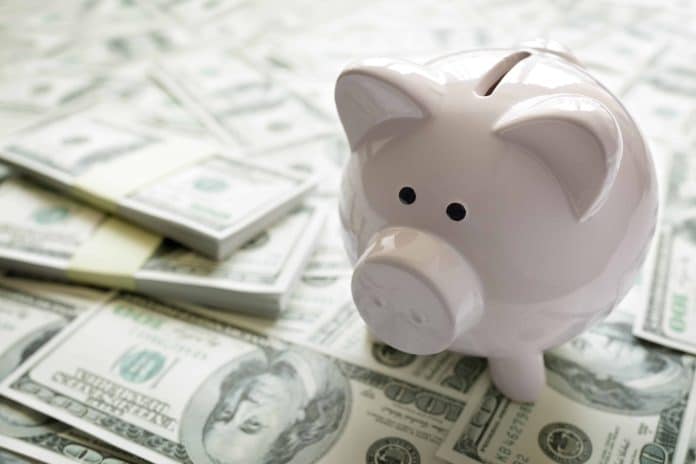
Since we were kids, we have been told that “money cannot buy happiness.” The truth is that this old cliché is only mostly accurate. According to a recent Cambridge University research, money may really buy happiness. Up to a certain point, at least. When it comes to money and happiness, all we need to do is to make sure that money is not an everyday issue.
Bad money habits, in particular, die hard. If you have no savings and spend more money than you make, it is time to change your spending habits and work toward healthier financial practices.
Your total financial situation can significantly improve as your daily spending habits change. You can include a few excellent money habits into your daily routine that will have a positive impact on your financial life with discipline and determined effort.
Bad Money Habits to Drop
Of course, changing old habits and making new ones takes time. But you need to be aware of what bad spending habits you might be doing every day to be able to change them. Here are some major negative habits to drop:
Building Up Debt
Ah, those magical plastic cards make shopping so tempting. Do not be fooled! You will wake up someday with a huge debt for stuff you never needed just because you used your credit card too much. This is especially the case if you are a typical American with a credit card balance of more than $6,000.
Having high credit card debt might potentially harm your credit score. Pay your debt in full every month to avoid wasting money on interest. This keeps you out of debt and saves you a lot of money.
Shopping Because You Feel Bored
It was once known as the home shopping network syndrome or shopping late at night when you are half-awake and bored. You would make a phone call and order these cool gadgets or whatever your weakness was.
It is so simple to shop while you are bored, thanks to online shopping. However, shopping just for being bored is a bad financial habit that might lead to debt if you are not careful.
Irresponsible purchases
All of those delicious treats attractively displayed in the checkout line are not there by chance. This is a retail strategy designed to get you to spend more money before leaving the store. Purchases made on the spur of the moment add up rapidly. Assume your monthly impulsive purchases are $100; that adds up to $1200 each year!
Status-Seeking
Do you buy things because you really need them or you are just trying to impress other people? It is easy to get caught up in celebrity fashion and the urge to impress others with what you have. Shopping for status is a bad way to make true friends and can lead to a financial crisis.
Remember that you should always be yourself, and you do not have to impress people with your stuff. Instead, go for those things that make sense in your life, no matter what others may think of them.
Ordering Food Everyday
Getting a snack or a coffee may seem to be inexpensive, but spending money on these small items on a daily basis quickly adds up. Rather than spending money on these items on the go, prepare your meals, snack, and coffee at home and because you’re not trapped with huge amounts of food at a restaurant, you will be able to make healthier nutritional choices.
One good idea is to invest in a good thermal coffee mug that is easy to grab, does not spill, and maintains the temperature of your coffee. If you stop spending money on coffee every day, a one-time purchase of a quality mug will rapidly pay for itself.
Try to buy snacks in bulk, then split them out each Sunday to last for the whole week. Also, plan your dinners for the week ahead of time so you may bring leftovers to work for lunch.
Good Money Habits to Adopt
To get started, we recommend creating a “baseline” of your overall financial situation. Then you can apply whatever tip that fits you from the following:
Use Your Credit Card Less
Being able to pay off debt and save money will undoubtedly remove some big tensions and unhappiness from your life. As a result, the most crucial money habit is to simply pay off credit card debt, instead of adding more to it for stuff you do not actually need.
By keeping this “optional” debt as low as possible, you may reduce expenses, boost savings, and live without the constant burden of not being able to meet your debt obligations.
Learn How to Cook
It is important to learn how to become your own chef. Cooking will be financially and mentally satisfying for you. Plan your meals carefully to ensure that they meet your nutritional needs.
Make a list of everything you will need to cook and prepare your meals ahead of time. This is critical for avoiding dining out at restaurants for lunch while at work. If you do not know how to cook, you can search it up on the internet. There are thousands of YouTube channels, professional websites, social media accounts, applications, and e-books to help you out.
Consider Second Hand stuff
Did you know that shopping secondhand may save you up to 40% off retail prices? Purchasing second hand gadgets, jewelry, and apparel may save you hundreds to thousands of dollars annually.
You can find some good stuff on local Facebook groups where you can see what gently used items your neighbors are selling. Join any garage sale group in your area and look through the listings. It is not difficult to find groups that specialize in selling specific products that you might be interested in.
Look For Coupons
It is not always necessary to avoid spending money totally in order to develop healthier financial habits. There are some items that you must purchase regardless of price. Toilet paper and soap will, no matter what, end up in your supermarket cart every few weeks. It is a good idea to keep an eye out for special offers and coupons for these things that you may buy every time you make a purchase.
So many websites focus on gathering most of the available promo codes and coupons of the most popular brands and stores. You can find so many coupons to use online or even in the physical store. Couponing is a money habit that will provide you with significant benefits over time. The more time and effort you dedicate to couponing, the more money you will save.
Minimize Using Utilities
It is common to walk out of a room and forget to switch off the light. Making the effort to turn off your lights and appliances when you are not using them in your home or workplace can help you save a large amount of money on your monthly utility bill. Turning off your electronics is not only a simple habit, but also it is good for the environment. There are a few things you can do every day to maximize your benefit and get the most out of your efforts:
- When you leave a room, make sure to turn off the lights.
- If the weather is nice outside, it is ok to open your windows and use fans around the house to circulate air and keep you cool in the summer. This will help you save money by using the air conditioner only on extremely hot days.
- By the same token, in winter, open your blinds and shades to let sunlight in and warm up your home, instead of using the heating system.
- When you are not using your electronics, turn them off. While many devices will go into “standby” mode if they are not used for a certain period of time, this still consumes some electricity.
Start a Money-Saving Challenge
It might be difficult to find the motivation to break bad habits and form new ones. Nonetheless, doing something exciting might help you stick to your plan and relieve the stress. In order to start developing healthy money habits, try a money-savings challenge.
It is simple; all you have to do is to save a fixed amount of money, depending on the rules of the particular challenge. In the $5 money-savings challenge, for example, you should save every $5 bill you get. There are multiple fun money challenges available to help you reach your savings goals and become more financially stable.
Conclusion
In short, when you embrace smart money habits, you set yourself up for financial success. Breaking old habits and having new ones can be challenging and does not usually happen overnight. It takes determination and a strong will to do it, along with the tips we mentioned.
While you get rid of a bad habit, start a good one at the same time. Replace eating out with cooking; instead of spending too much with your credit card, live within your means and pay off your debts; stop buying stuff you do not actually need just to impress other people and pay more attention to what benefits you.
References:
- Bad Money Habits To Drop, Good Money Habits To Build
- 26 Better Money Habits for Saving, Budgeting, and Increasing Your Income





















